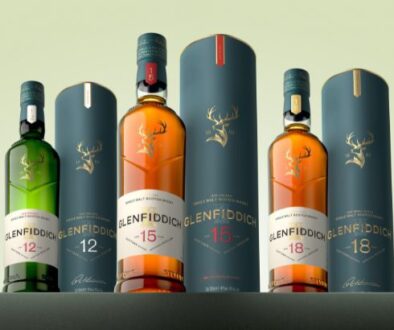Opinion piece – whisky 100 points system
The whisky review scene is regularly abuzz with discussions on the value of the classic 100-point rating system which is so widely used amongst whisky reviewers. Should you wish to catch up on the debate, the best place to go would probably be the relatively recent ‘round table’ discussion over at the Jewish Single Malt Whisky Society, where 12 prominent whisky bloggers have shared their views.
I didn’t originally intend to share my own view of the system, but having read so many articles about it of late I couldn’t resist joining in on the fun. As you may have noticed, I do not (unlike four – correct me if I’m wrong – of the honorable knights of the whisky round table) myself use a rating system, and this little post shall explain why. While I see the point (please don’t interpret that as a pun) in them, I don’t think they could ever work – at least not in a blog setting. You see, everyone likes different types of whiskies; some of us will prefer the sweet and loving embrace of a Dalmore 12, while others will prefer the peaty smoke of an Ardbeg 10.
Now, I think they are both absolutely outstanding whiskies in their price range and I do hold them both dear, but as regular readers of this blog may have noticed, I do have a preference for a sweeter whisky. In other words, though I fully appreciate both of the above expressions and think they are – if I am to be neutral – each other’s equal in every respect, I would have to score Dalmore higher because it appeals slightly more to my pallet. Hypothetically (and don’t read in to these scores, they are quite arbitrary) I would give Dalmore 90 and Ardbeg 85 – this would, I think, reflect the fact that I think both are outstanding whiskies (thus a score over 80) yet I do have a preference for Dalmore, simply because of my incurable sweet tooth.
Some might think that unfair – why should Dalmore get 5 points more than Ardbeg when I’ve just said that they are both each other’s equal in every way? Shouldn’t they both get 85? 90? Or perhaps 87.5? You would be absolutely right to say that, because if they are pretty much exactly as good as each other. But then, what would the point be in my trying to be neutral? This blog is supposed to reflect my opinion, after all, as that is all I could possibly give. Whichever way you go around it, you will end up with an unfair score. And that’s without even going in to the incredibly difficult area of bang for buck – is a Dalmore King Alexander the III, at over $155, really only 2 points better than Dalmore 12, at $55? Should they even be rated on the same scale?
In my opinion, the best information you can share is the flavours, textures, and smells you experience. I gain far more insight into a whisky by reading that this and that reviewer have both picked up a banana note on the palate – which I can then try to find myself, which is always interesting – than I do from a score of 85 here and 87 there.





October 8, 2011 @ 1:35 pm
Martin, I also enjoy this discussion, and I’m still making up my mind on it a bit, but I am pretty confident that I like scores. This is from the opinion of someone who is a whisky nut and likes to do lots of whisky research before buying a whisky, and does read a lot of whisky blogs.
You’re right that your 90 and 85 for Dalmore 12 and Ardbeg 10 are probably my 85 and 90, respectively, but I think that’s what is great about having so many good quality whisky blogs! As a reader, if I read a professional blog like “What Does John Know,” then I expect scores to be “unbiased.” That is, if those two whiskies are really equal quality then I would expect equal scores. But when I am reading amateur blogs like yours, I expect and actually enjoy seeing what people actually like. It takes some effort on the part of the reader to filter the scores in terms of what the author likes, but I think it gives you a lot more information if you’re willing to work for it. It also means that the shopper probably needs to visit more than one blog, but I think that’s a good idea anyway.
I disagree with you that tasting notes are more helpful than scores. Certainly, I wouldn’t use a score without a review, but I think scores really help quantify how enjoyable a whisky is and this helps you decide if it’s really worth buying. I mean, just because a whisky has a banana note in it, does that mean it’s worth $50? Hard to say, I think. But, if you’re reading a blog and there are two similar style whiskies and one is a 90 and one is a 85, then that helps me decide to go buy the 90 whisky.
So, to summarize, what you find as a fault in the scoring system – that scores are subjective to one’s tastes – I find as a positive that makes these whisky blogs more helpful for the whisky nut looking to decide where to spend his (or her) money.